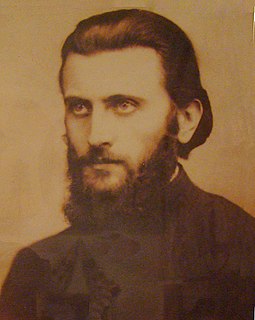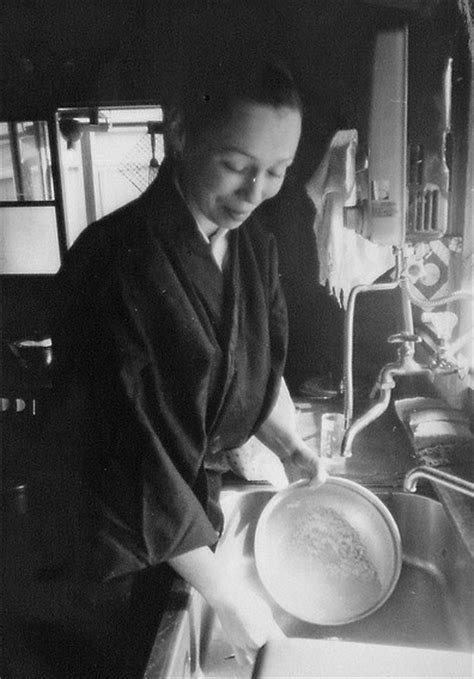A Quote by Nhat Hanh
When someone does not know how to handle his own suffering, one allows it to spill all over the people around him or her. When you suffer, you make people around you suffer. That's very natural. This is why we have to learn how to handle our suffering, so we won't spread it everywhere.
Related Quotes
Husbands are not Christ. But they are called to be like him. And the specific point of likeness is the husband's readiness to suffer for his wife's good without threatening or abusing her. This includes suffering to protect her from any outside forces that would harm her, as well as suffering disappointments of abuses even from her. This kind of love is possible because Christ died for both husband and wife. Their sins are forgiven. Neither needs to make the other suffer for sins. Christ has borne that suffering. Now as two sinful and forgiven people we can return good for evil.
When a man finds that it is his destiny to suffer, he will have to accept his suffering as his task. . . . He will have to acknowledge the fact that even in suffering he is unique and alone in the universe. No one can relieve him of his suffering or suffer in his place. His unique opportunity lies in the way in which he bears his burden.
To choose a hardship for ourselves is our only defense against that hardship. This is what is meant by accepting suffering. Those who, by their very nature, can suffer completely, utterly, have an advantage. That is how we can disarm the power of suffering, make it our own creation, our own choice; submit to it. A justification for suicide.
It brings spiritual warfare and suffering for the priest as he identifies with those who suffer, and shares the frustrations, anger, and incomprehensibility of that suffering in what it does to those who suffer. The priest shares in these struggles of his suffering people, the uncertainties it brings, the sense of divine abandonment it induces, and the loneliness caused.
A certain monk told me that when he was very sick, his mother said to his father, "How our little boy is suffering. I would gladly give myself to be cut up into pieces if that would ease his suffering." Such is the love of God for people. He pitied people so much that he wanted to suffer for them, like their own mother, and even more. But no one can understand this great love without the grace of the Holy Spirit.
When a man finds that it is his destiny to suffer, he will have to accept his suffering as his task; his single and unique task. He will have to acknowledge the fact that even in suffering he is unique and alone in the universe. No one can relieve him of his suffering or suffer in his place. His unique opportunity lies in the way in which he bears his burden.
At some point, we have each said through our tears, “I’m suffering for a love that’s not worth it.” We suffer because we feel we are giving more than we receive. We suffer because our love is going unrecognized. We suffer because we are unable to impose our own rules. But ultimately there is no good reason for our suffering, for in every love lies the seed of our growth.
The best test to know whether an entity is real or fictional is the test of suffering. A nation cannot suffer, feel pain or fear, or has no consciousness. Even if it loses a war, the soldier suffers, the civilians suffer, but the nation cannot suffer. Similarly, a corporation cannot suffer, when it loses its value, it doesn't suffer. All these things, they're fictions. If people bear in mind this distinction, it could improve the way we treat one another and the other animals. It's not a good idea to cause suffering to real entities in the service of fictional stories.
Suffering, if you're a Christian, suffering is a part of life. And it's not a bad thing, it is an essential thing in life... There are all different ways to suffer. One way to suffer is through lack of food and shelter and there's another way to suffer which is lack of dignity and hope and there's all sorts of ways that people suffer and it's not just tangible, it's also intangible and we have to consider both.




























